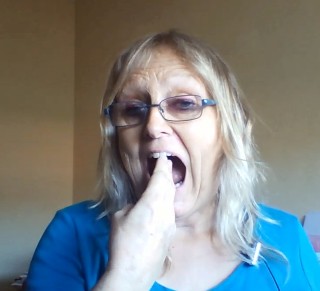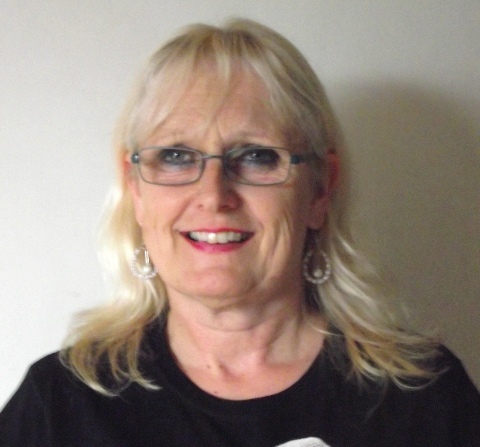How to stop speaking too quickly in 6 easy steps
Most people at some time are guilty of speaking too quickly. We all have that moment when our brain seems to have so much information to share that we think we have to get it all out in one go and nobody can understand a word we say! It happens to me and I'm sure it happens to you but how can you stop it happening more often than you'd like?
The
first thing to realise is that just telling yourself to slow down
hardly ever works. You will be thinking so much about slowing down
that you will forget what you want to say or you will sound so boring
that no one will want to listen to what you have to say. You need a
way to slow down but still sound excited and enthusiastic about
whatever it is you're talking about.
I have been teaching people to speak clearly since 1994 and getting people to stop speaking too quickly is the thing I am asked to do most often and it is one of the simplest things to learn how to do.
There are 6 things you can do to help you slow down
Open your mouth

Open your mouth a little bit wider than you do. This helps the sound to get out and it also slows you down, it might only be a fraction of a second but it helps. You can do this with the vowel sounds in a word. Let me explain how. We have five vowels but about 22 different sounds. For example the letter 'i'makes two different sounds in English. Say these two words out loud 'sign' and 'thin'. The first word 'sign' makes an eye sound and you should open your mouth as wide as possible. Say the word 'sign' out loud and open your mouth as wide as you can. I'm guessing that you think you have just opened it very wide but look in a mirror and say it again. Open as wide as when you yawn. I don't expect you to open it that wide when talking in a conversation (you may look a bit daft) but if you practise that wide – with three fingers vertically in your mouth, you will be more likely to open it as wide as two fingers when speaking. This is one step towards not speaking too quickly.
Finish the words
Make sure you put the ends on the words. Many people just don't realise that they cut nearly every word short and this makes their speech sound mumbled and very quick. If you write the word 'and' with a 'd' on the end of it, say it with a 'd' on the end. Make sure that your tongue touches the top of your mouth. It doesn't have to be overdone and dramatic just a quick but clear 'd'. This applies to any word that ends with a consonant but particularly if it is a 'd'or 't' - it, but, had, cat, appointment (which also has a 't' in the middle). This consonant sound is a lingua palatal – tongue touching the roof of your mouth. As well as making your speech clearer and easier to understand it slows you down because you are physically having to move your organs of speech. This is the second step to help you stop speaking too quickly.
Don't miss out syllables
Another reason your speech may be too rapid is that you leave out syllables. Here are a few examples. 'Different' should be pronounced 'diff e rent' and not diffrent. The same with 'interest', it should be 'in te rest' not 'intrest' and every should be 'e ver ree' and not evry. The middle syllable is very quick but it is there. If you speak too quickly you will not be giving yourself time to put in these syllables.
Lengthen the words
This is related to the first point, try to make each individual word longer. When I teach people and ask them to try and slow down the first thing they do is make the gaps between the words longer. Consequently their speech becomes disjointed and hard to follow. They lose all of their fluency. A better and easier thing to do is to make each word longer and the easiest way to do this is to make the vowel sounds longer – just a fraction of a second. Let me explain. Take the word 'long' make it longer by holding the 'o' sound so you get 'loong'. You can do the same with the word 'smile', hold the 'eye' bit, open your mouth wider and then make sure that your tongue touches the roof of your mouth for the 'l' sound. You can do the same for a simple and often used word like 'and'. Open your mouth for the first 'a' sound and hold it for a fraction of a second and don't forget the d at the end! Speaking too quickly means all the words have the same short length - there needs to be variety.
Pausing
Next we come to pausing. You need to stop after every sentence or new thought. You must give the listener time to take in what you have just said. If you played football and scored a goal, you stop, you let the fans applause, you walk back to the centre and the game restarts. When you speak you need to stop, give the listener time to take in what you have said and either agree, disagree or understand the point and then you can start again with the next thought or idea. You need to pause before or after or even before and after important words.
When you write you use fullstops and commas. You use paragraphs. If you didn't your writing would be very difficult to read and yet that is how a lot of people speak. If I rewrite the first couple of paragraphs of this article with no punctuation you would find it almost impossible to understand and yet you may speak like that and expect people to understand you. Now imagine how difficult it would be if I didn't put a space between the words!
Most people at some time speak too quickly we all have that moment when our brain seems to have so much information to share that we think we have to get it all out in one go and nobody can understand a word we say it happens to me and I'm sure it happens to you how can you stop it happening more often than you'd like the first thing to realise is that telling yourself to slow down hardly ever works 5 things you can do to help open your mouth a bit wider this helps the sound to get out and it also slows you down it might only be a fraction of a second but it helps you can do this with the vowel sounds in a word let me explain how we have five vowels but about 22 different sounds for example the letter imakes two different sounds in English say these two words out loud sign and thin the first word sign makes an eye sound and you should open your mouth as wide as possible
Speaking
and writing are two different skills and if you are good at one it
doesn't necessarily mean you are good at the other but there are
things we can learn from writing and use when trying to improve our
speaking skills.
Silence is a powerful tool and it shows you have confidence in yourself if you can pause. Panicky people gabble - talk rapidly and unintelligibly as defined in the Oxford Dictionary
Pausing is possibly the most important way to not speak too quickly and is certainly worth mastering.
Brain
Finally I would say before you speak just remind your brain to slow down. This gives you, the speaker, a chance to put your thoughts in order. It gives you time to say the ends of the words and to elongate the vowel sounds. When you pause you can breathe and think. All of this means you have time to make what you are saying sound interesting. I am not suggesting that you speak slowly with no expression but please give the listener time to appreciate what you are saying. It doesn't matter how fantastic your ideas or stories are, if people can't understand you they will never know how brilliant you are!
Summary - how to stop speaking too quickly
- Open your mouth
- Say the ends of the words
- Syllables
- Lengthen the words
- Pause
- Remind your brain
Sometimes we speak too quickly because we are excited or angry. Other times it might be because we are anxious and we just want to get what we have to say over as quickly as possible. This often doesn't work because the listener will just ask us to repeat it and we would have been better off just taking our time in the first place. Speaking more slowly certainly takes the stress out of speaking so it is a skill that is worth mastering.
If you want to improve your speaking in some way I can help you. I have created online courses that you can watch at your leisure that will help you speak more confidently and with more clarity. These courses are not very long but have everything you need to improve your speech. When you enrol on one of these courses you get access to me to ask questions, send audio clips etc every day of the year.
Course 1 - Speak Clearly and Confidently

- How to speak clearly and confidently will teach you how to speak so that you have more confidence in your voice and are more easily understood when talking to people at work, school, making presentations or public speaking.
- This course has been designed so that you can hop from one lecture to another they are not dependent upon each other, this makes improving your speech easier for you as you can concentrate on the bits you think you need to.
- It is only 1 hour 30 mins long because I have been teaching this since 1994 and I know what you need to know - we get straight to the point so as not to waste your valuable time.
- The course also includes as a download my 31 page ebook about speaking well and goes into the topics in the course in a little bit more detail.